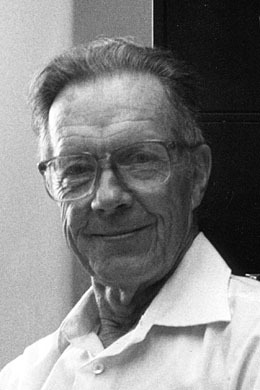Biography: Joe M. Smith
When Joe Mauk Smith died in June 2009, Bob Powell — then chair of UC Davis’ Department of Chemical Engineering and Materials Science — offered the highest of accolades: “By virtue of his textbooks, Joe was arguably the most influential educator in the history of chemical engineering. He certainly set the standard for the department and the college.”
 No doubt Smith was inspired to greatness by his parents, who moved the family to Pasadena during the Great Depression, so that their son — recently admitted to the California Institute of Technology — could save money by living at home and thus avoiding payments for room and board.
No doubt Smith was inspired to greatness by his parents, who moved the family to Pasadena during the Great Depression, so that their son — recently admitted to the California Institute of Technology — could save money by living at home and thus avoiding payments for room and board.
After obtaining a degree in applied chemistry in 1937, Smith spent four years working for Texaco (in New York City) and then Chevron (in El Segundo and Santa Fe Springs); seeking the greater challenges of advanced studies, he obtained a D.Sc. at MIT in 1943. He then taught at the University of Maryland for one year, and began what blossomed into a 12-year stint at Purdue University.
Once established at Purdue, he began writing his groundbreaking book, Introduction to Chemical Engineering Thermodynamics; early drafts were employed as Purdue textbooks until 1949, when the book finally was published. Six editions and updates later, it continues to be the best-selling text book in chemical engineering history.
Smith was recruited by UC Davis in 1961, where he helped established the College of Engineering the following year. He then founded the UC Davis Department of Chemical Engineering in 1965, where he served as department chair until 1972. He was named UC Davis Faculty Research Lecturer in 1970, and elected to the National Academy of Engineering in 1975. His many awards included four Fulbright fellowships and a Guggenheim fellowship.
Mandatory retirement in 1986 didn’t slow Smith down; he remained a highly visible presence in the department. Ten years later, he and his wife endowed the Joe and Essie Smith Chair in Chemical Engineering, his former department’s first endowed chair.
Smith’s many accolades notwithstanding, he’s also well remembered for his enthusiastic participation in his department’s annual Picnic Day barbecue: a time when he could mix and mingle with the many former students — having become professors themselves — who had been so strongly motivated by his individualized approach to education.
